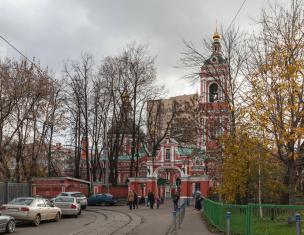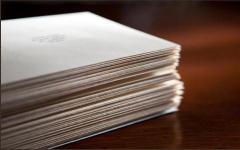VAT – This is an indirect tax that is paid by taxpayers to the state budget for certain goods, works and services.
Who pays VAT
Value added tax can be paid by such entities economic activity How:
- Legal entities that are on common system taxation;
- Individual entrepreneurs who are subject to the general taxation system;
- Legal entities and individual entrepreneurs who import goods into Russia, regardless of the taxation system.
What is VAT?
VAT can be divided into two types, namely:
- Domestic VAT is when the tax is paid within the country, and depends on which taxation system the taxpayer is in;
- External VAT is when it is paid when goods are imported into Russia from abroad, and in this case it does not matter which taxation system the taxpayer is on.
External VAT is always paid more to the budget, only because it is paid by everyone who transports goods into Russia from abroad, and internal VAT is always less, since not all taxpayers on the territory of the Russian Federation are subject to the general taxation system.
Who is not a VAT payer?
Not all taxpayers can be VAT payers; there are categories that do not belong to the group of VAT payers, these include:
- Individuals who are not registered as individual entrepreneurs with the tax office;
- Individual entrepreneurs and legal entities who are on a simplified tax system;
- Individual entrepreneurs who are on the patent tax system;
- Legal entities whose type of activity is exempt from paying value added tax.
What VAT rates apply in the Russian Federation?
According to the legislation on the territory of the Russian Federation, a general VAT rate of 18% is applied; only for certain types of goods it may vary or be absent altogether.
So let’s look at what bets there are:
18% – for almost all goods that do not relate to certain types of activities;
10% – this rate applies to vital necessary products, namely: medicines, meat products, children's products and other goods;
0% – on goods that are sent for export.
Deadlines for payment of VAT and deadlines for submitting VAT reporting
The deadlines for paying VAT are regulated by clause 1 of Art. 174 Tax Code of the Russian Federation. Payment must be made monthly by the 25th of the quarter following the reporting period. If the VAT payment deadline falls on a weekend, then it is paid on the first working day after the weekend.
Let's consider the deadlines for paying VAT in the form of a table:
| Reporting period | Payment due in 2020 |
| 4th quarter 2017 | January 25, 2020; February 26, 2020; March 26, 2020; |
| 1st quarter 2020 | April 25, 2020; May 25, 2020; June 25, 2020; |
| 2nd quarter 2020 | July 25, 2020; August 27, 2020; September 25, 2020 |
| 3rd quarter 2020 | October 25, 2020; November 26, 2020; December 25, 2020 |
| 4th quarter 2020 | January 25, 2020; February 25, 2020; March 25, 2020. |
In 2020, the VAT return must be submitted no later than the 25th day of the month following the expired quarter (Articles 163, 174 of the Tax Code of the Russian Federation). The deadline is the same for submitting a declaration on paper and in electronic form. The reporting months in 2020 are January, April, July, October.
If the reporting deadline falls on a weekend or holiday, then it is postponed to the first working day in accordance with clause 7 of Art. 6.1 Tax Code of the Russian Federation
Reflection of VAT on the advance report
In accounting, VAT is reflected on the advance report in two ways, namely:
Method No. 1
| Dt26, 44 | Kt71 | amount of expenses according to the approved advance report |
| Dt19 | Kt71 | VAT on postage |
| Dt68 | Kt19 | VAT is accepted for deduction |
Method No. 2
| Dt26, 44 | Kt60 | amount of postage on receipts |
| Dt19 | Kt60 | VAT on postage |
| Dt60 | Kt71 | advance report approved |
| Dt68 | Kt19 | VAT is accepted for deduction |
The reporting person attaches a receipt for payment of postal services to the advance report. VAT is highlighted on the receipt, but there is no invoice.
How to reflect VAT expenses in accounting and tax accounting?
Based on Art. 171 of the Tax Code of the Russian Federation, the taxpayer has the right to reduce the total amount of tax calculated in accordance with Art. 166 of the Tax Code of the Russian Federation, for tax deductions. Subject to deductions are the amounts of “input” VAT on goods (works, services, property rights) that are acquired to carry out transactions recognized as subject to VAT.
According to paragraph 1 of Art. 172 of the Tax Code of the Russian Federation, tax deductions are made on the basis of invoices issued by sellers when the taxpayer purchases goods (work, services, property rights). In this case, only tax amounts presented to the taxpayer upon acquisition of goods (work, services, property rights) after the registration of these goods (work, services, property rights) and in the presence of relevant primary documents are subject to deductions.
An invoice is a document that serves as the basis for the buyer to accept goods (works, services) presented by the seller, property rights and tax amounts for deduction (clause 1 of Article 169 of the Tax Code of the Russian Federation).
Conditions for issuing funds on account
In order to issue funds on account, certain conditions must be met. Such conditions may be:
- Third parties - if previously it was possible to issue funds only to a full-time employee, now it is possible to issue funds to persons who work under a civil contract.
If an accountable person sees the need to distribute the funds issued to him for reporting among third parties, then he can take into account the movement of funds in a free-form statement. Moreover, if the documents confirming the expenditure of funds attached to the advance report are issued in the name of another person, and the company can confirm that the purchase was made in its interests, then you do not have to worry that the tax office will have questions about such a report.
- The limit of accountable funds is 100 thousand within one agreement. This norm is enshrined in the instruction of the Central Bank of the Russian Federation “On cash payments” dated 10/07/2013 No. 3073-U. This means that the accountable person can purchase goods or provide services for an amount not exceeding 100 thousand rubles from only one counterparty.
- Documents - the accountable person after spending the accountable funds must mandatory provide an advance report, which is completed according to
form AO-1 approved by the State Statistics Committee of the Russian Federation or in a form developed and approved by the economic entity independently. Documents must be attached to the advance report that confirm that the accountable funds were spent on the needs of the enterprise. Such documents can be: cash receipts, receipts for the receipt order, strict reporting forms, as well as receipts from ATMs and payment terminals.
Issue dated August 16, 2013
Account correspondence schemes
Selection based on materials from the information bank "Correspondence of Accounts" of the ConsultantPlus system
Situation:
How is the purchase of goods for the business needs of an organization in a retail store reflected in accounting if the purchases were made by an employee of the organization using the funds issued to him on account?
The employee (accountable person) submitted an advance report to the accounting department accompanied by a cash receipt issued in the store, in which the VAT amount is highlighted as a separate line. No invoice was issued by the retail store. The cost of household goods intended to ensure normal working conditions on the premises of the organization (cleaning products, hygiene products) amounted to 2950 rubles. (including VAT 450 rub.). In the month of purchase, all household goods are transferred for use.
Account correspondence:
The procedure for conducting cash transactions
The issuance of cash from the cash desk on account for expenses associated with the organization’s activities is carried out on the basis of an application from the accountable person, drawn up in any form. The application must contain a handwritten inscription by the manager about the amount of cash and the period for which the cash was issued, the personal signature of the manager and the date (clause 4.4 of the Regulations on the procedure for conducting cash transactions with banknotes and coins of the Bank of Russia in the territory Russian Federation, approved by the Bank of Russia on October 12, 2011 N 373-P).
Note that the issuance of cash on account is carried out subject to full repayment by the accountable person of the debt on the amount of cash previously received on account (clause 4.4 of the Regulations on the procedure for conducting cash transactions).
Based on the application of the accountable person, an Expenditure Cash Warrant is issued (unified form N KO-2, approved by Resolution of the State Statistics Committee of Russia dated August 18, 1998 N 88<*>) (clauses 1.8, 4.1, 4.4 of the Regulations on the procedure for conducting cash transactions). The cash disbursement order must be signed by the manager and the chief accountant or accountant (in the absence of the chief accountant or accountant - by the manager, cashier) (clauses 2.2, 1.6 of the Regulations on the procedure for conducting cash transactions). When the cashier issues cash, the accountable person indicates the amount of cash received and signs the cash receipt order (clause 4.3 of the Regulations on the procedure for conducting cash transactions).
Within a period not exceeding three working days after the expiration date for which cash was issued on account, the accountable person is obliged to present an Advance report (unified form N AO-1, approved by Resolution of the State Statistics Committee of Russia dated 01.08.2001 N 55<*>) about the amounts spent with supporting documents attached (in this case, such a document is the store’s cash receipt). Checking the advance report, its approval by the manager and the final settlement of the advance report are carried out within the time period established by the manager (clause 4.4 of the Regulations on the procedure for conducting cash transactions).
Value added tax (VAT)
By general rule VAT amounts paid when purchasing goods for the business needs of an organization are subject to tax deductions based on invoices issued by sellers (clauses 1, 2 of Article 171, clause 1 of Article 172 of the Tax Code of the Russian Federation).
In this case, the organization purchases, through an accountable person in a retail store, household goods necessary for the organization’s activities. At the same time, the seller did not issue an invoice, but highlighted the VAT amount as a separate line in the cash receipt<**>.
Note that the obligation of the seller (in the situation under consideration - a retail store) to issue invoices, established by paragraphs 3, 4 of Art. 168 of the Tax Code of the Russian Federation, is considered fulfilled upon issuance of a cash receipt (clause 7 of Article 168 of the Tax Code of the Russian Federation)<***>.
Cases when deductions can be made without an invoice on the basis of other documents are listed in paragraphs 3, 6 - 8 of Art. 171 of the Tax Code of the Russian Federation (clause 1 of Article 172 of the Tax Code of the Russian Federation). The purchase of goods from a retail trade organization does not apply to these cases.
The Russian Ministry of Finance expresses the opinion that when purchasing goods from retail organizations, a cash register receipt is not the basis for deducting VAT; VAT is deducted only if there is an invoice from the seller (see, for example, Letter dated 03.08.2010 N 03-07 -11/335).
At the same time, the Presidium of the Supreme Arbitration Court of the Russian Federation concluded that it is legal to apply a tax deduction for VAT on goods purchased in a retail trade organization for cash, in the absence of a seller’s invoice, based on a cash receipt with an allocated amount of VAT (Resolution of the Presidium of the Supreme Arbitration Court of the Russian Federation dated May 13. 2008 N 17718/07 in case N A40-13151/06-98-80). This position is supported by a number of lower courts.
Thus, the issue of applying a tax deduction without an invoice when purchasing goods in cash from retail enterprises is controversial and is discussed in detail in the Encyclopedia of VAT Disputes.
In this consultation, we proceed from the condition that the organization, guided by the explanations of the official bodies, takes a safer position and does not accept for deduction the amount of “input” VAT on purchased household goods, highlighted in the check of the cash register (KKM), since the corresponding invoice was not offered by the seller.
Accounting
Accounting entries for recording the issuance of funds to an employee on account for the purchase of goods for business needs, as well as the acceptance for accounting of acquired inventories (MPI) and their transfer for use are made in the order established by the Instructions on the application of the Chart of Accounts for accounting of financial and economic activities of organizations, approved by Order of the Ministry of Finance of Russia dated October 31, 2000 N 94n, and are shown in the following table of transactions.
Purchased household goods are accepted for accounting as inventories at actual cost, which recognizes the amount of the organization's actual costs for their acquisition, excluding VAT and other refundable taxes (clauses 2, 5, 6 of the Accounting Regulations "Accounting for inventories" "PBU 5/01, approved by Order of the Ministry of Finance of Russia dated 06/09/2001 N 44n). Since in this case VAT on purchased household goods is not accepted by the organization for deduction (i.e. it is a non-refundable tax), the actual cost at which goods are accepted for accounting is the price paid to the seller, including VAT (paragraph 3, 6 p. 6 PBU 5/01).
On the date of transfer of the specified inventories for use for business purposes, their actual cost is recognized as an expense for ordinary activities (clauses 5, 7, 16 of the Accounting Regulations “Organization's Expenses” PBU 10/99, approved by Order of the Ministry of Finance of Russia dated 05/06/1999 N 33n, paragraphs 90, 93 Guidelines for accounting of inventories approved by Order of the Ministry of Finance of Russia dated December 28, 2001 N 119n).
Corporate income tax
In accordance with paragraph 1 of Art. 252 of the Tax Code of the Russian Federation, expenses for profit tax purposes are any justified and documented expenses incurred by the taxpayer, provided that they were incurred to carry out activities aimed at generating income.
In this case, the costs of purchasing household goods are economically justified, since they were made to ensure normal working conditions, namely to maintain cleanliness and hygiene in the organization’s premises. Documentary evidence of the expenses incurred is the employee's advance report and the retail store cash receipt attached to it. Thus, the costs of purchasing household goods satisfy all the criteria for recognizing expenses provided for in paragraph 1 of Art. 252 of the Tax Code of the Russian Federation, and can be taken into account as expenses for profit tax purposes.
Expenses for the purchase of household goods can be classified as material expenses due to paragraphs. 2 p. 1 art. 254 of the Tax Code of the Russian Federation as expenses for the purchase of materials used for other production and economic needs (including the maintenance, operation of fixed assets and other similar purposes). On this issue, see Letter of the Ministry of Finance of Russia dated April 11, 2007 N 03-03-06/1/229.
At the same time, expenses for household goods may be included in other expenses associated with production and sales, based on paragraphs. 7 clause 1 art. 264 of the Tax Code of the Russian Federation as expenses for ensuring normal working conditions (Letter of the Federal Tax Service of Russia for the city of St. Petersburg dated 04/03/2006 N 02-05/07859@).
For more information on this issue, see the Encyclopedia of Disputed Situations on Income Tax.
If some expenses can be attributed simultaneously to several groups of expenses with equal grounds, the taxpayer has the right to independently determine which group he will assign such expenses to (Clause 4 of Article 252 of the Tax Code of the Russian Federation).
Regardless of the method of tax accounting of income and expenses used by the organization, these expenses are recognized as household goods are transferred for their use (clauses 1, 2, article 272, subclause 1, clause 3, article 273 of the Tax Code of the Russian Federation).
As a rule, material costs provided for in paragraphs. 2 p. 1 art. 254 of the Tax Code of the Russian Federation, as well as other costs associated with production and sales, provided for in paragraph 1 of Art. 264 of the Tax Code of the Russian Federation are recognized as indirect expenses if such a procedure is provided for by the accounting policy of the organization (clause 2, paragraph 9, 10 clause 1 of Article 318 of the Tax Code of the Russian Federation). Indirect expenses are fully included in the expenses of the current reporting (tax) period (clause 2 of Article 318 of the Tax Code of the Russian Federation).
In accordance with paragraph 1 of Art. 170 of the Tax Code of the Russian Federation, the amount of VAT presented by the seller (highlighted in a separate line on the KKM receipt) and not accepted for deduction due to the absence of an invoice is not recognized as an expense for tax purposes (except for the cases listed in clause 2 of Article 170 of the Tax Code of the Russian Federation) . The organization does not have a seller's invoice confirming its right to apply a VAT deduction, clause 2 of Art. 170 of the Tax Code of the Russian Federation is not provided for. Consequently, in the case under consideration, the cost of household goods purchased by the accountable person is included in expenses without taking into account the amount of VAT allocated in the cash receipt (Letter of the Ministry of Finance of Russia dated April 24, 2007 N 03-07-11/126, as well as Practical guide for income tax).
Application of PBU 18/02
Expenses in the amount of VAT allocated in the KKM receipt are recognized in accounting, but are not taken into account for profit tax purposes. In this regard, when recognizing these expenses in accounting, the organization has a permanent difference and a corresponding permanent tax liability (PNO) (clauses 4, 7 of the Accounting Regulations “Accounting for calculations of corporate income tax” PBU 18/02 , approved by Order of the Ministry of Finance of Russia dated November 19, 2002 N 114n).
Accounting entries for recording PNO are made in the manner established by the Instructions for the Application of the Chart of Accounts and are shown in the following table of entries.
<*>About the application features unified forms primary accounting documents from 01/01/2013, see comment.
<**>According to paragraph 6 of Art. 168 of the Tax Code of the Russian Federation, when selling goods (work, services) to the population at retail prices (tariffs), the corresponding amount of VAT is included in the indicated prices (tariffs). At the same time, the amount of VAT is not allocated on product labels and price tags issued by sellers, as well as on checks and other documents issued to the buyer.
<***>Note that if a retail trade organization receives cash from an individual who is a representative of the organization, then clause 7 of Art. 168 of the Tax Code of the Russian Federation does not apply and the seller, upon receipt of an advance payment, in addition to issuing a cash receipt, issues an invoice (Letter of the Federal Tax Service of Russia for Moscow dated November 4, 2004 N 24-11/71008, consultation with the RF Tax Service Advisor, III rank Yu.Yu. Sysonova dated April 28, 2004). Wherein individual must present a power of attorney issued by the purchasing organization (clauses 1, 5, Article 185 of the Civil Code of the Russian Federation).
According to the financial department, the company does not have the right to deduct VAT when purchasing goods at retail, even if the tax amount is highlighted on a separate line in the cash receipt. It will not be possible to include VAT as an expense when calculating income tax. This conclusion is contained in the letter of the Ministry of Finance of Russia dated January 24, 2017 No. 03-07-11/3094.
The situation that financiers considered occurs in practice all the time. The employee was given cash on account to purchase, for example, stationery. The employee attached a cash receipt to the advance report, in which the VAT amount was separately allocated. There is no invoice. Question: is it possible to deduct VAT in this case? And if not, is it legal to include this tax as an expense when calculating income tax?
Note that the problem is very relevant. The fact is that from July 1, 2017, all cash register receipts will contain both the VAT amount and the tax rate. After all, from this date, sellers will completely switch to a new type of checkout. And among the mandatory details of the cash register receipt printed by these cash registers are the amount and rate of VAT (Clause 1, Article 4.7 of the Federal Law of May 22, 2003 No. 54-FZ).
Experts from the Russian Ministry of Finance began their answer with general provisions Chapter 21 of the Tax Code of the Russian Federation. They indicated that the list of documents on the basis of which VAT amounts are deducted is contained in paragraph 1 of Art. 172 of the Tax Code of the Russian Federation. It includes:
invoices issued by sellers;
documents confirming the actual payment of tax amounts when importing goods into the Russian Federation;
documents confirming payment of tax amounts withheld by tax agents;
other documents in cases provided for the deduction of VAT paid by the company directly to the budget, as well as as part of travel and entertainment expenses (clauses 3, 6-8 of Article 171 of the Tax Code of the Russian Federation).
Based on this, financiers concluded that the Tax Code does not provide for the specifics of deducting VAT in relation to goods purchased in retail trade. Therefore, if a company has a cash register receipt, even with a separate tax amount allocated, but there is no invoice, the tax cannot be deducted.
Note that the courts are not so categorical. Thus, the Presidium of the Supreme Arbitration Court of the Russian Federation, in its resolution dated May 13, 2008 No. 17718/07, indicated that, in accordance with clause 7 of Art. 168 of the Tax Code of the Russian Federation, when selling goods for cash in retail trade, the requirements for preparing payment documents and issuing invoices are considered fulfilled if the seller issues the buyer a cash receipt or other document of the established form. Consequently, if payment for goods was made taking into account VAT, the buyer has the right to deduct this tax.
As for accounting for non-deductible VAT as an expense when calculating income tax, here too the position of the Ministry of Finance is not in favor of companies. This amount of VAT cannot be included in the cost of purchased goods, since this is not provided for in clause 2 of Art. 170 Tax Code of the Russian Federation. And according to paragraph 1 of Art. 170 of the Tax Code of the Russian Federation, in other cases, the amounts of VAT charged to the buyer when purchasing goods are not taken into account in income tax expenses.
Employees attach checks (other documents) to expense reports, where the VAT amount is highlighted as a separate line, or it contains the entry “including VAT” or “including VAT”. How to correctly attribute the purchase amount to accounting and tax expenses? The VAT amount is not deductible, since there are no invoices. Should the VAT amount allocated in the check be debited to account 91 and not taken into account for profit tax purposes? Do we have the right to assign the entire amount indicated in the check to account 44 and take it into account when taxing profits?
In the case where there is no invoice for the expense report and the employee is given a payment document (cash/sales receipt, receipt, etc.), from which it follows that the cost of the property/service includes VAT (VAT is allocated as a separate amount, or there is the designation “ including VAT”, “including VAT”, etc.), then when calculating income tax, VAT on such costs should not be included as expenses, but written off from the organization’s own funds. Make the following entries in your accounting:
Debit 41 (10, 20 ...) Credit 71 – costs for goods/materials/services purchased through an employee are taken into account, excluding VAT;
Debit 19 Credit 71 – VAT on purchased goods/materials/services is taken into account;
Debit 91-2 Credit 19 – VAT is written off from the organization’s own funds;
Debit 99 subaccount “Permanent tax liabilities” Credit 68 subaccount “Calculations for income tax” - a permanent tax liability has been accrued.
The rationale for this position is given below in the materials of the Glavbukh System
Depending on what conditions are met, input VAT can be dealt with in one of three ways:
take for deduction;
include in the cost of expenses;
write off at the expense of the organization's own funds.
VAT can be deducted if the following conditions are met:
tax is presented by suppliers;
goods (work, services) will be used in activities subject to VAT;
there is an invoice for purchased goods (works, services).*
An example of writing off VAT at the expense of an organization’s own funds for expenses incurred through an accountable person
On April 3, the secretary of Alpha LLC E.V. Ivanova was given 2,000 rubles. for the purchase of office supplies (paper, staplers, pens, etc.) for the organization.
On April 6, the secretary bought stationery with all the accountable money. On the same day, the head of Alpha approved Ivanova’s advance report, and the accountant accepted the received materials for accounting.
The sales receipt, which is attached to Ivanova’s advance report, contains VAT in the amount of 305 rubles, but there is no invoice. Therefore, Alpha’s accountant attributed the “input” tax to the organization’s own funds.
He made the following entries in accounting.
Debit 71 Credit 50
– 2000 rub. – money was issued against Ivanova’s report.
Debit 10 Credit 71
– 1695 rub. (RUB 2,000 – RUB 305) – stationery purchased through an employee was received;
Debit 19 Credit 71
– 305 rub. – VAT on purchased stationery is taken into account;
Debit 91-2 Credit 19
– 305 rub. – VAT is written off at the expense of the organization’s own funds;
Debit 99 subaccount “Fixed tax liabilities” Credit 68 subaccount “Calculations for income tax”
– 61 rub. (RUB 305 ? 20%) – a permanent tax liability has been accrued.*
Sergey Razgulin,
Actual State Councilor of the Russian Federation, 3rd class
Description of the situation:
The reporting person attaches a receipt for payment of postal services to the advance report. .VAT is highlighted on the receipt, there is no invoice.
Question:
How to reflect VAT expenses in accounting and tax accounting?
Answer:
Based on Art. 171 of the Tax Code of the Russian Federation, the taxpayer has the right to reduce the total amount of tax calculated in accordance with Art. 166 of the Tax Code of the Russian Federation, for tax deductions. Subject to deductions are the amounts of “input” VAT on goods (works, services, property rights) that are acquired to carry out transactions recognized as subject to VAT.
According to paragraph 1 of Art. 172 of the Tax Code of the Russian Federation, tax deductions are made on the basis of invoices issued by sellers when the taxpayer purchases goods (work, services, property rights). In this case, only tax amounts presented to the taxpayer upon acquisition of goods (work, services, property rights) after the registration of these goods (work, services, property rights) and in the presence of relevant primary documents are subject to deductions.
An invoice is a document that serves as the basis for the buyer to accept goods (works, services) presented by the seller, property rights and tax amounts for deduction (clause 1 of Article 169 of the Tax Code of the Russian Federation).
In accordance with paragraph 7 of Art. 168 of the Tax Code of the Russian Federation, when selling goods for cash by organizations and entrepreneurs of retail trade and public catering, as well as other organizations and entrepreneurs performing work and providing paid services directly to the population, the requirement for issuing invoices is considered fulfilled if the seller issues a cash receipt to the buyer or other document of the established form. According to the regulatory authorities (Letters of the Ministry of Taxes of Russia dated May 13, 2004 N 03-1-08/1191/15@, Federal Tax Service of Moscow dated November 4, 2004 N 24-11/71008, Ministry of Finance of Russia dated March 19, 2004 N 04-03 -11/42), this norm applies only to organizations and entrepreneurs selling goods (work, services) directly to the population. In cases where the goods are purchased by a legal entity or entrepreneur, the seller is required to issue an invoice.
But, in this case, it is necessary to take into account that the expenses are reflected in the advance report, i.e. the accountable person interacts with the service provider (post office) as an individual. Quite a lot of arbitration practice has developed on this issue. It is especially necessary to note the positive decision for taxpayers adopted in Resolution of the Presidium of the Supreme Arbitration Court of the Russian Federation dated May 13, 2008 N 17718/07. The Presidium of the Supreme Arbitration Court of the Russian Federation considered a case in which an entrepreneur purchased gasoline at gas stations that carry out retail trade for the population. Payment, including VAT, was made in cash and confirmed by cash receipts issued by the seller. Gasoline was used by the entrepreneur to carry out business activities, i.e. for transactions recognized as subject to VAT. The Supreme Arbitration Court of the Russian Federation indicated that the use by an entrepreneur of a tax deduction for VAT is consistent with the position set forth in the Decree of the Constitutional Court of the Russian Federation dated 02.10.2003 N 384-O, which explains that an invoice is not the only document to be provided to the taxpayer tax deductions according to VAT. Deductions can also be provided on the basis of other documents confirming the payment of this tax.
Considering the above, when applying a VAT deduction for goods (work, services) for which there are cash receipts but no invoices, taxpayers have certain risks of making claims from the tax authorities. However, taking into account the specified Resolution of the Presidium of the Supreme Arbitration Court of the Russian Federation, the actions of taxpayers to deduct VAT are legal and in the event of legal disputes, the taxpayer’s position is stronger.
In accounting, VAT on advance reports can be reflected in two ways:
Method 1 (more preferable given the current situation)
| Dt26, 44 | Kt71 | amount of expenses according to the approved advance report | ||
| Dt19 | Kt71 | VAT on postage | ||
| Dt68 | Kt19 | VAT is accepted for deduction |
Method 2
| Dt26, 44 | Kt60 | amount of postage on receipts | ||
| Dt19 | Kt60 | VAT on postage | ||
| Dt60 | Kt71 | advance report approved | ||
| Dt68 | Kt19 | VAT is accepted for deduction |
At the same time, we inform you that this Answer expresses the private opinion of a tax consultant, is of an informational and explanatory nature and does not prevent you from following the norms of the legislation of the Russian Federation in an understanding that differs from the interpretation set out in the above Answer.
(The answer was prepared using materials from SPS ConsultantPlus)








